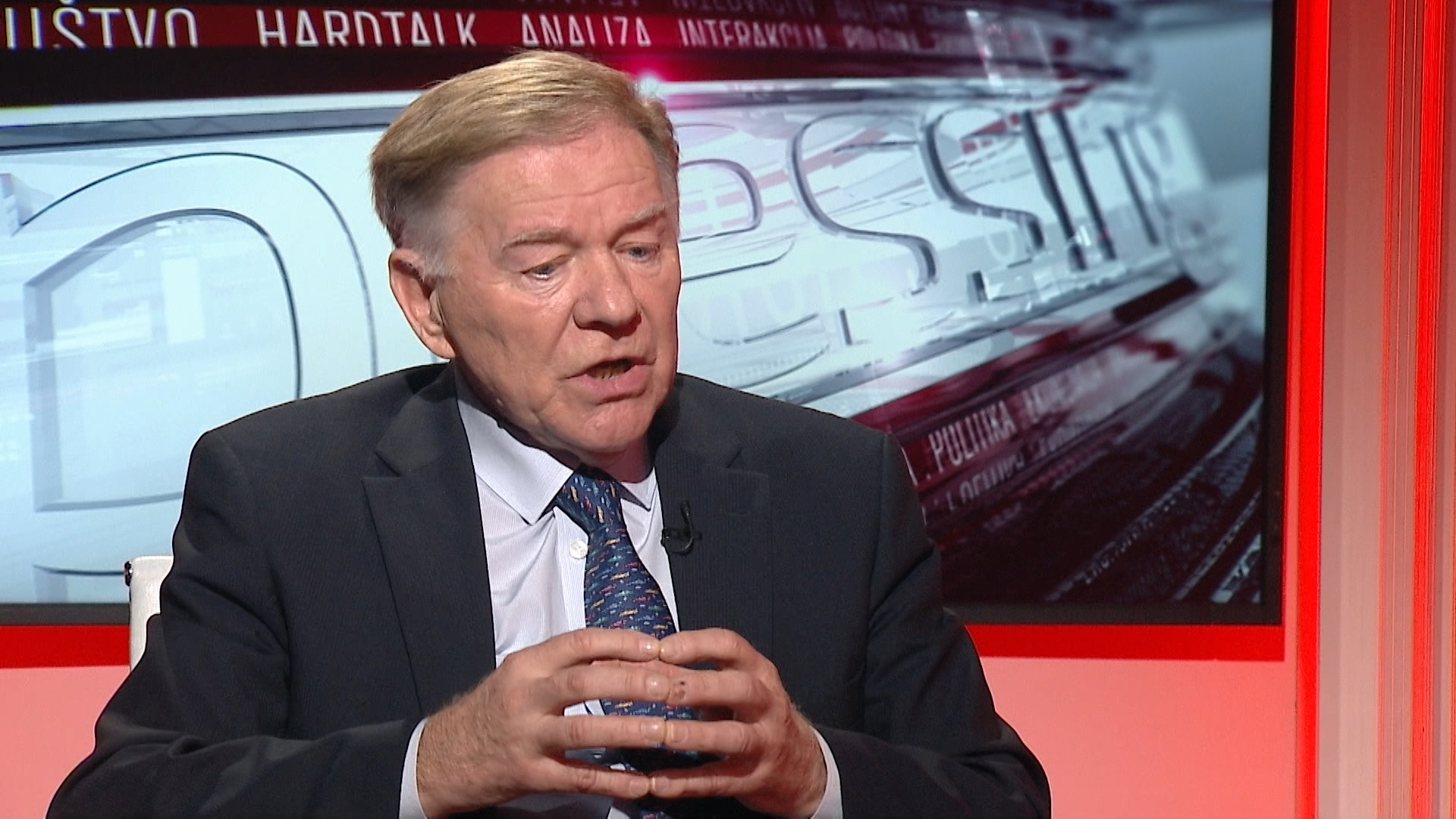
Bosnia and Herzegovina is in a “vicious circle” of nationalism, but the West will not allow for the country to be divided, former member of Bosnia’s Presidency, ex-mayor of Sarajevo and sociologist, Ivo Komsic, told N1 on Wednesday.
According to Komsic, there are two main reasons for why Bosnia is being stuck in this cycle of nationalism.
“Nationalism is a cover for the power that one wants to retain, and there are all kinds of things behind that power, such as crime,” he said, adding that nationalists waged war in order to completely divide the state and that this policy is still present today.”
According to the 1995 Dayton Peace Agreement, Bosnia’s Serb-majority Republika Srpska (RS) entity should not exist in its present form, he said. The country’s current tripartite Presidency Chairman and leader of the ruling party in the RS, Milorad Dodik, has brought back the state of the RS as envisioned by former RS President and convicted war criminal Radovan Karadzic, he said.
Another reason the country is spinning in this vicious circle is the constant blocking of processes to prove the country is dysfunctional and prevent people from re-connecting, he said, adding that the same individuals who are creating this situation then complain that it is unbearable and offer a division of the country as a solution.
Many different policies contribute to this, he said.
Bosniaks, Komsic argued, should not be leading a radical policy and should not accept nationalism as they “wouldn’t have a future, if there was no BiH,” he said.
Then there are the “two enemies of the state,” he said, referring to Bosnian Serb and Croat nationalists.
He said that the current policy of neighbouring Croatia, especially that of the Croat Democratic Union (HDZ), is the resurrection of a territorial unit that was convicted by the International Criminal Tribunal for the Former Yugoslavia (ICTY), in The Hague, Netherlands.
Komsic was referring to Herzeg-Bosna, a self-declared wartime Bosnian Croat political structure established in 1991, which had the ambition to secede and become part of neighbouring Croatia. The court described the structure as a joint criminal enterprise.
The Croat-Bosniak conflict ended in 1994 with an agreement brokered in Washington, D.C. which prescribed the creation of a Bosniak-Croat Federation entity (FBiH) on territories controlled by Bosniaks and Bosnian Croats. Herzeg-Bosna was abolished two years later.
On the other hand, Dodik and his political allies are claiming that Bosnia and Herzegovina is an impossible state the way it was set up by the Dayton Agreement, although they are the ones pursuing the same policy that led to the war in the first place, Komsic said.
As for the Dayton Agreement, which contains Bosnia’s Constitution, Komsic said that while it is lacking in some aspects, it was not based entirely on an ethnic concept.
Whoever secures the most votes is a legitimate representative, he said, arguing that he, as a Bosnian Croat, still has the option to vote for a Serb, Croat or Bosniak who will represent the interests of the state.
Any ethnicity-based electoral units in Bosnia would be “fascist totalitarian creations” he said, arguing that this would not entail a policy that benefits the people, but one based on hatred towards other peoples.
With such electoral units, “multi-ethnic parties and the civic principle would be completely abolished,” he argued.
According to Komsic, people who are pursuing a non-nationalist, citizen-based society are the most jeopardized group in Bosnia.
However, those forces who are pushing for secession will fail because the international community, led by the United States, will never allow this to happen, he said.
“I do not believe that they will now allow - and they haven’t so far - for some nationalists and neo-fascists to ruin their agreements. They are proud of their agreements, those made in Washington and in Dayton,” he said of the US.
“They say those are their biggest diplomatic success since World War II,” he said. “Some people here think that they can overturn those agreements, that the forces behind them will allow some neo-Nazis to destroy those agreements,” he explained.
“That is not possible,” Komsic declared.
Kakvo je tvoje mišljenje o ovome?
Učestvuj u diskusiji ili pročitaj komentare





 Srbija
Srbija
 Hrvatska
Hrvatska
 Slovenija
Slovenija







